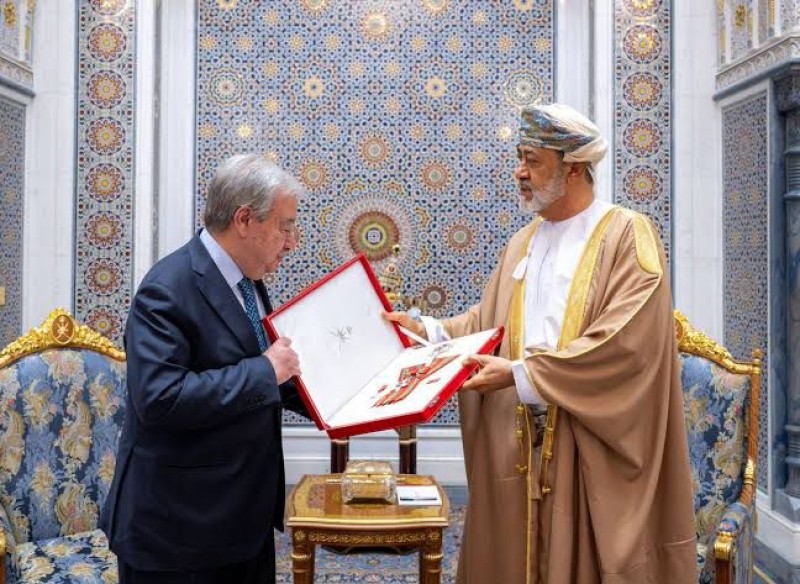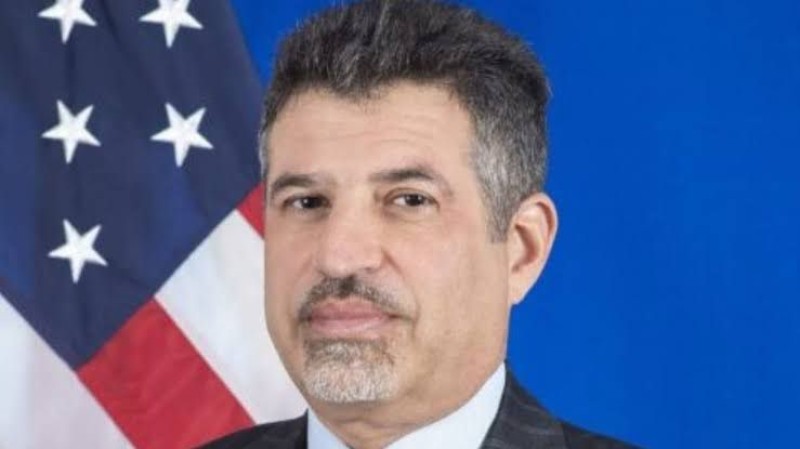The remarkable story of how Yemen’s oil tanker disaster was averted by crowdfunding


Since 1988, the hulking form of the FSO Safer has floated in the Red Sea, receiving crude oil from the bountiful Marib oilfields of Yemen. For 30 years, the ship was a critical piece of infrastructure in Yemen’s booming oil industry, which at one time generated 63% of government revenue.
But the civil war broke out in 2014, and most of the Safer’s crew were forced to abandon ship, leaving behind its cargo: 1.1m barrels of oil. Against mounting costs and security risks, maintaining the vessel became near impossible.
When leaks in the engine room in 2020 threatened to sink the ship, it stoked fears of what would happen if the cargo – four times more oil than was spilled by the Exxon Valdez off Alaska in 1989 – plunged into the ocean. So, the UN, faced with a “ticking timebomb” and desperate to prevent an environmental and humanitarian catastrophe, turned to an unprecedented source: crowdfunding.
The remarkable story that ensued finally came to its conclusion last week when salvage teams completed a multimillion-dollar operation to remove the oil from the Safer, thereby dodging a disaster that could have been “the worst spill of our era”. But it was not destined to end happily, and in fact hung precariously on a rare thread of agreement between two warring parties in Yemen.
Since 1988, the hulking form of the FSO Safer has floated in the Red Sea, receiving crude oil from the bountiful Marib oilfields of Yemen. For 30 years, the ship was a critical piece of infrastructure in Yemen’s booming oil industry, which at one time generated 63% of government revenue.
But the civil war broke out in 2014, and most of the Safer’s crew were forced to abandon ship, leaving behind its cargo: 1.1m barrels of oil. Against mounting costs and security risks, maintaining the vessel became near impossible.
When leaks in the engine room in 2020 threatened to sink the ship, it stoked fears of what would happen if the cargo – four times more oil than was spilled by the Exxon Valdez off Alaska in 1989 – plunged into the ocean. So, the UN, faced with a “ticking timebomb” and desperate to prevent an environmental and humanitarian catastrophe, turned to an unprecedented source: crowdfunding.
The remarkable story that ensued finally came to its conclusion last week when salvage teams completed a multimillion-dollar operation to remove the oil from the Safer, thereby dodging a disaster that could have been “the worst spill of our era”. But it was not destined to end happily, and in fact hung precariously on a rare thread of agreement between two warring parties in Yemen.
“I would describe it [Safer] as a monster,” says David Gressly, the UN’s resident and humanitarian coordinator for Yemen, who, with governments, NGOs and Yemeni businessmen, spearheaded the rescue. “They don’t make them like this any more.”
Built as a supertanker in 1976, the Safer was later converted into a floating storage and offloading platform (FSO), a vessel that stores crude oil in huge cargo tanks to be offloaded by passing ships. The vessel is owned by the Safer Exploration and Production Operations Company, Yemen’s first national oil and gas company.
After the war began, only a small, dedicated workforce stayed behind to maintain the vessel. The odds were stacked against them: not only was the FSO Safer’s explosive cargo positioned in a war zone, leaving access limited by whoever controlled the coastline, but after 2015 the vessel’s safety systems – to inhibit gas explosions and fire – broke down, and structural weaknesses developed in the hull.
The FSO Safer has been hanging over our heads like a ticking timebomb since 2015,” says Ghiwa Nakat, the executive director of Greenpeace for the Middle East and North Africa.
Modelling showed that oil from a sinking or exploded ship would have saturated the coastlines of Yemen, Saudi Arabia and North Africa, smothering mangroves and coral reefs, decimating a fishery on which 1.7 million people depend, and poisoning desalination plants that provide freshwater to 10 million more. It would have also clogged the ports of Hodeidah and Saleef, crucial entry points for humanitarian support.
“The thought of a major oil spill in the Red Sea hindering the distribution of essential food aid to millions of vulnerable individuals was a chilling nightmare,” Nakat says.
It was the gravity of this threat both to Yemen’s Houthi rebels and to Saudi Arabia, which backs the internationally recognised government, created a thread of agreement between the two warring parties that allowed Gressly to begin meeting groups separately in 2021 to discuss how to save the ship.
The UN-mediated negotiations were on a knife-edge: at the time, the Safer lay just miles from the frontline, near Hodeidah, and an influx of foreign negotiators to the region only fuelled mistrust. Discussions were necessarily tentative and slow, Gressly says. “Only by solving the political and security issues, could you even start to talk about implementing a technical solution.”
In September 2022, however, both parties agreed to a plan to remove the oil. That hinged on a key demand: someone would have to buy a new vessel to hold the transferred oil, whose ownership is contested. Most of it is the property of the state, but the war has complicated who that represents, with the coalition-backed government and Houthi rebels each claiming the cargo.
A new ship would cost more than $50m (£39m) – an amount usually covered by the shipowners and their insurers. However, the warring conditions meant the normal rules did not apply, and it fell to the UN to find $144m to cover the total costs, including the new ship and hire of a salvage company to transfer the oil. In May 2022, the UN launched an ambitious fundraising drive from member states, a tactic usually reserved for humanitarian disaster response.
Despite some large injections of funding, progress was slow. “If we had a major oil spill there, we would have probably raised a billion dollars in a month, because there are mechanisms for governments to do just that,” says Gressly. But securing money to prevent the oil spill was an entirely different story. “Every government struggled with that – they just didn’t have budget lines. So what do you take it from?”
Eager to maintain the hard-won momentum from the negotiations, the UN began appealing for funding from the private sector. Then, most unusually of all, in June 2022 the UN expanded its appeal to the public, through a crowdfunding drive launched by Gressly himself, which succeeded in raising £300,000.
By September 2022 the campaign had gathered $75m of the required $144m from a mix that included 17 countries, a Yemeni multinational firm and even a group of concerned US schoolchildren. When the campaign reached $121m in July this year, the UN’s emergency humanitarian fund provided a loan that closed the remaining $20m gap.
The money freed the UN to finally procure a replacement storage tanker, which it christened “the Yemen”, and from there action was swift. On 2 June the salvage company Smit Salvage boarded the FSO Safer to assess the hull and the risk of gas explosions, the first inspection since 2015 and a hugely risky move, as simply berthing the replacement ship alongside the Safer’s weakened hull might have been enough to shatter it. An emergency aircraft was on standby in Djibouti, ready to drop its load of microbial oil dispersant in case of a spill.
Almost a month later, Smit gave the Safer the all-clear, and on 25 July the MT Yemen sidled up alongside it to receive its load. Transferring 1m barrels of oil through hydraulic pumps is a painstaking process. But as the last barrel was siphoned off on 11 August, there was palpable relief that it could no longer cause harm, Gressly says.
The MT Yemen will be tethered temporarily to the sea floor with a specialised anchor, until a safe parking place is found. Careful deliberations will follow on how to divvy up the oil profits, when it is eventually sold. “No one would want to see the proceeds going to enhance military capabilities, for example,” Gressly says. Now all that’s left is to tow the FSO Safer to shore, where its steel flanks will probably be scrapped and recycled. Greenpeace will be watching to ensure it doesn’t end up in one of south-east Asia’s notorious shipbreaking yards, says Nakat.
She questions the complacency of the oil companies in averting this almost catastrophic oil spill, noting that a Greenpeace investigation revealed that TotalEnergies and Exxon probably own a share of the ship’s oil. Gressly says an oil industry umbrella organisation donated $500,000 to the campaign.
Noting that this a fraction of the required cost, Nakat says: “You have the international community, UN members, and individuals from around the world coming together to contribute $121m and counting … on the other hand, you have these oil giants, who should bear the lion’s share of responsibility, neglecting their duties,” she says.
Gressly says that despite hearing from the salvage team that the vessel had at most a year before it would have crumbled into the sea, he still had to fight off scepticism to the last day that the fundraising would be “money that was well spent”.
He wonders if better mechanisms are needed to avert future disasters. “Prevention is just not a thing that we do collectively,” he says. “Fortunately, this was an exception.”

Muscat – The Office of the UN Special Envoy to Yemen said Monday that UN Secretary-General António Guterres discussed the overall situ…

Riyadh — U.S. Ambassador to Yemen, Steven Fagin, on Monday underscored Washington’s commitment to the unity of the Presidential Leaders…

Abyan — The Southern Transitional Council (STC) in Yemen announced on Monday the launch of wide-scale military operations in Abyan province,…